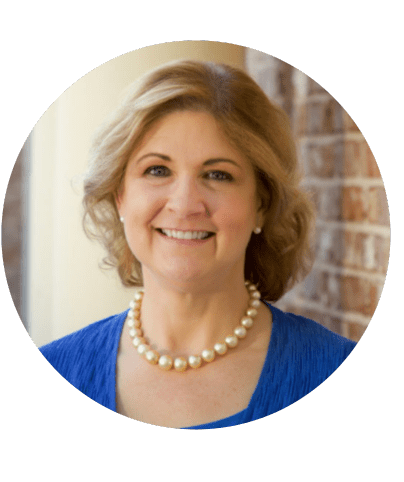Gen Z And Self-Esteem: The Kids Are (Gonna Be) Alright

By Ashia Gallo
Wholeness Collective Coordinator at Mosaic Georgia
 May is National Teen Self-Esteem Month!
May is National Teen Self-Esteem Month!
What better time to raise awareness on the importance of our youth feeling self-aware, confident, and healthy as they grow to rule this world someday. It’s been a few decades now since an iconic diva instructed us to teach children well, let them lead the way, and to hold up a mirror for them to see their own beauty. But in order to guide, we must understand Generation Z, or Gen Z, which comprises those born between 1996 and 2015.
As a 30-year-old Millennial, it blows my mind to watch my “Gen Z” nieces whose diapers I changed evolve into young womanhood. It’s fascinating to see their growing awareness of their own bodies, opinions, and talents. Especially in a world that continues to change at a mind-numbing rate!
Each generation has its gripes with authority and the stack of cards they feel they were dealt – it’s a natural rite of passage! Gen Z, however, is determined to break generational limits like injustice, intolerance, and bootstrap myths. On a large scale, their worldview seems to encompass inclusivity, sensitivity, and a refusal to shy away from tough societal realities.
A major strength of the Gen Z generation includes their willingness to accept all layers of their identities (think gender and sexual fluidity), despite outdated “social norms”. This openness applies to how mental health and self-esteem is discussed in youth culture today. Gen Z is open and eager to explore their struggles with anxiety, depression, trauma, and triggers. They also seem to not only question authority, but understand the unresolved issues of previous generations in order to break the proverbial chain.
Studies show Gen Z to be the least confident generation. Their progressive political and social views are challenged by the intense pressures of being a young person in 2023. Causes include: grossly skewed coming-of-age milestones interrupted by a global pandemic; very real struggles with anxiety and depression; lack of close family units and community; and less enthusiasm about the future than past generations.
The impacts of the Internet and social media have also been discussed since their inception in the 2000s. However, I’m afraid we are just touching the surface of the long-term effects of our (now portable) 24-hour news cycles and problematic portrayals of false, flawless on-screen lifestyles.
For school-age Gen Zers, the pressure of perfection runs deep. When I think of my own self-esteem struggles during teen years, the constant threat of permanent exposure of my most painful experiences existing forever on the Internet is unfathomable. The darker sides of technology – mob-like bullying, sexual exploitation, cancel culture, and abuse – have impacted our kids’ self-esteem deeply. Swiping, liking, and canceling at will is not only limited to Gen Zers. The increased dependence we have on our screens has led to a decrease in face-to-face human interaction and ease of conversation – especially for our youth.
Self-esteem is dependent upon having a sense of belonging, identity, and self-confidence. While Gen Z does struggle with these areas, not all is lost. This new generation is full of hard-working, pragmatic fighters. Even when their voices shake, they believe in activism and being advocates for human rights, in both large and small ways. They take up for themselves and their peers. They demand historically accurate classrooms, socially aware campuses, and respectful workplaces, despite age or skill level.
It gives me hope that this generation is willing to take a stand on anything and everything, from racism and transphobia, to climate change and equal pay. Their ability to survive and thrive will surely shape the future of society in ways that will move humanity onwards and upwards.







 “Showing gratitude is one of the simplest yet most powerful things humans can do for each other.”
“Showing gratitude is one of the simplest yet most powerful things humans can do for each other.”



 At Mosaic Georgia, we play a very sensitive role in the lives of the clients we support. From the first moment we meet them, the stakes are high. We are likely making introductions with a crime victim on the worst day of their lives. It’s a sacred responsibility that our team doesn’t take lightly.
At Mosaic Georgia, we play a very sensitive role in the lives of the clients we support. From the first moment we meet them, the stakes are high. We are likely making introductions with a crime victim on the worst day of their lives. It’s a sacred responsibility that our team doesn’t take lightly.
 WELLNESS falls among the countless misused (and misunderstood) ‘buzz words’ in our culture slowly losing their meaning. In a climate of extremes where you’re either a ‘narcissist’ or a ‘spiritual guru’, it became essential for Mosaic Georgia to do wellness thoughtfully when its Wholeness Collective programming launched in 2022.
WELLNESS falls among the countless misused (and misunderstood) ‘buzz words’ in our culture slowly losing their meaning. In a climate of extremes where you’re either a ‘narcissist’ or a ‘spiritual guru’, it became essential for Mosaic Georgia to do wellness thoughtfully when its Wholeness Collective programming launched in 2022.



 My interest in wellness and healing really exploded during my time living in Mozambique, an African nation along the southeast border of the continent. I was a Health Outreach Peace Corps volunteer in my mid-20s; my main work objective was planning public health projects for the local hospital in my rural farming community.
My interest in wellness and healing really exploded during my time living in Mozambique, an African nation along the southeast border of the continent. I was a Health Outreach Peace Corps volunteer in my mid-20s; my main work objective was planning public health projects for the local hospital in my rural farming community.

